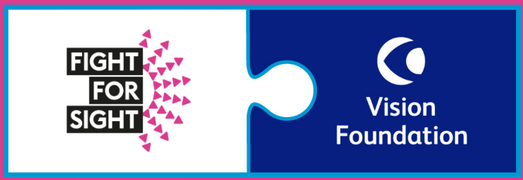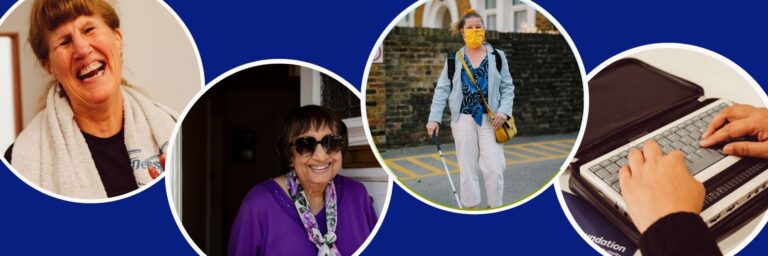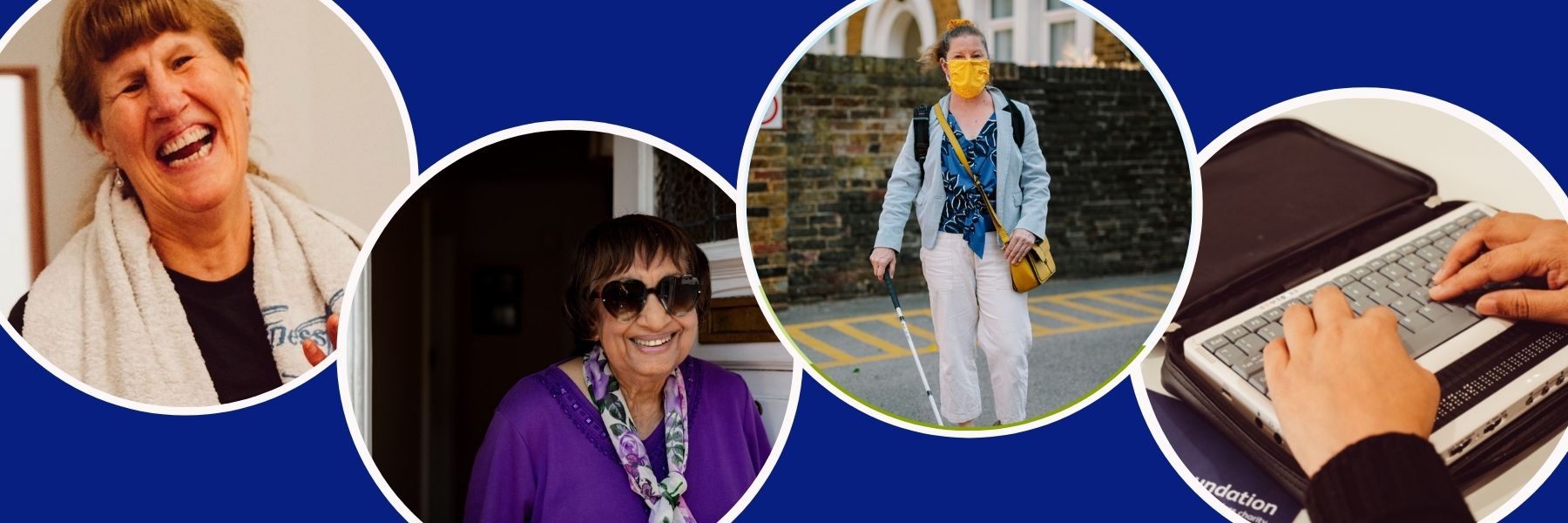A roadmap for change
Our See My Skills campaign sets out a roadmap to ensure that everyone, sighted or blind, has the chance to enjoy the independence, purpose and meaning that employment can bring.
We identify the barriers, and how to knock them down. We’re calling for a united response to address unemployment in the visually impaired community; to see skills not barriers. Through small changes in practice and attitudes, we know that together the public, private and charitable sectors can level the employment playing field for blind and partially sighted people.
Policy Makers
We’re calling on policy makers to improve Access to Work and Jobcentre Plus to better support blind and partially sighted people into employment. Despite the Equality Act, blind and partially sighted people still face discrimination when trying to access the labour market. Access to Work and Jobcentre Plus, government programmes designed to support people into work, are creating additional barriers to employment, due to the way they are designed, administered and delivered.
Access to Work needs to be made more accessible
- Awareness of Access to Work and how to apply should be better promoted to individuals and employers of all sizes. Current awareness is low. For example, only 9 per cent of small businesses – who have the most to gain – use it.*
- The application, assessment and claims process should be made more accessible to blind and partially sighted people, in formats that can be completed independently, without sighted assistance.
- The process needs to be speeded up so that individuals are not starting employment without the necessary equipment or support, or out of pocket.
- The eligibility criteria should be broadened to cover all unpaid opportunities including internships, work experience or voluntary work.
Jobcentre Plus provision needs to be improved
- Staff should receive better training about visual impairment and how to signpost to specialist support.
- Staff need to raise their aspirations for blind and partially sighted job seekers and not assume they will be ‘better off’ on benefits.
- Jobcentre Plus offices should offer assistive technology.
- Where they exist, generalist disability employment advisers should receive specialist training in visual impairment.
Businesses
We’re calling on businesses big and small, to work with us to reduce employment barriers for blind and partially sighted people.
The most common barriers identified by blind and partially sighted people about gaining work are related to employer attitudes and processes – inaccessible recruitment processes, poor employer attitudes and poor employer support.
- Employers and recruiters should make application processes accessible.
- Employers, trade, professional organisations and unions should improve their understanding of visual impairment.
- Employers should provide sight loss awareness training in the workplace.
Sight Loss Charities
We’re calling on sight loss charities, to work together to amplify successes and address gaps in evidence and service provision.
- Intervene earlier when someone is at risk of losing their job or has just lost a job.
- Provide services tailored to the needs of the individual. This might include providing technology, facilitating work experience, helping an individual to accept their visual impairment, supporting the development of self-advocacy skills or helping someone to set up their own business.
- Lead by example by offering employment, work experience, internships and voluntary work placements and sharing their expertise as accessible employers.
- Provide mentoring schemes, with a particular focus on filling the gap in provision for older jobseekers (26+).
- Evaluate and report on the effectiveness and impact of employment support interventions to improve knowledge in the sector.
* Now is the Time (2021) CSJ Disability Commission
** Slade, Edwards, Crawley (2020) Employment for blind and partially sighted people in 2019. RNIB


